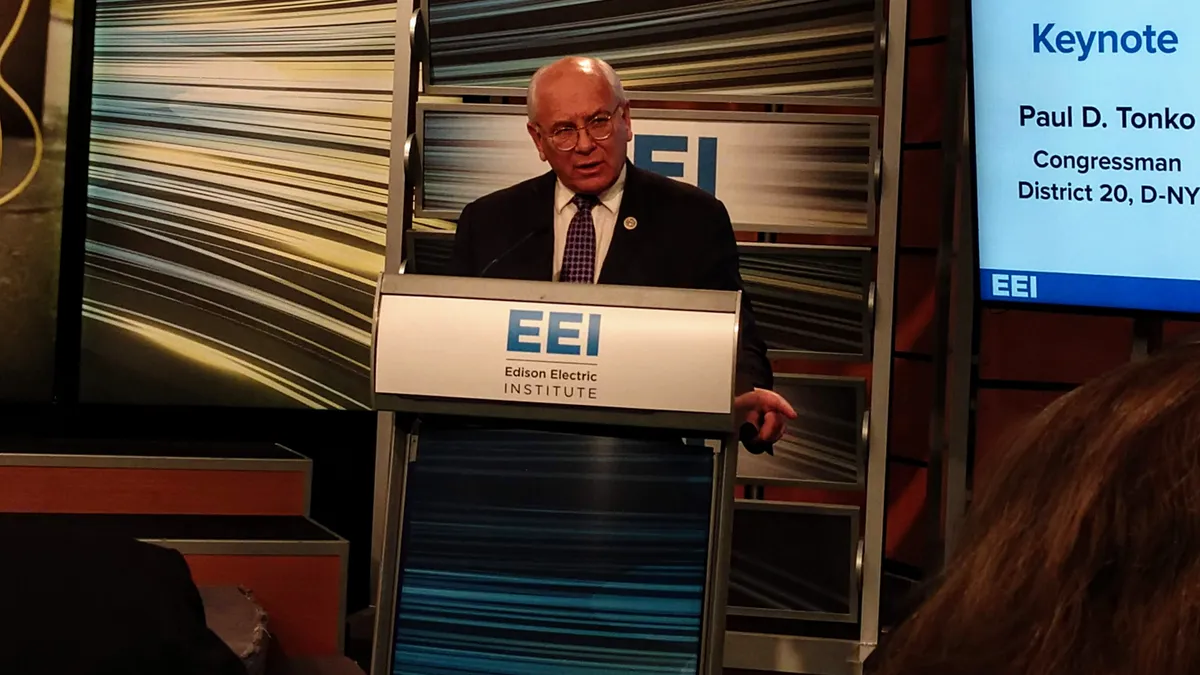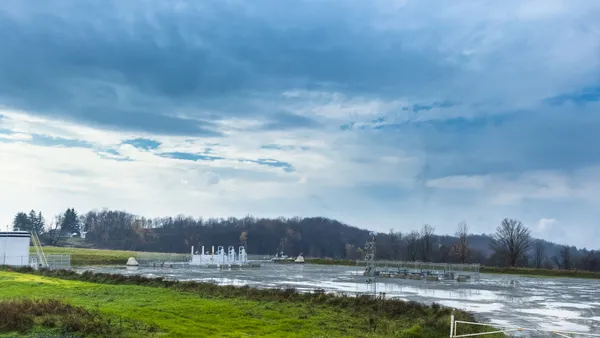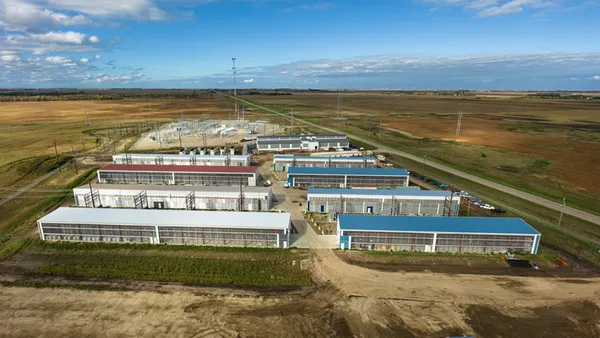UPDATE: Dec. 11, 2020: The U.S. Department of Energy has issued a final rule that it says adopts "a streamlined approach to its test procedure waiver decision-making process." The rule, which goes into effect Jan. 11, requires DOE to make a decision on test waiver requests from appliance manufacturers within 45 days — and if the agency doesn't respond in that time, a six-month waiver would automatically go into effect. Critics say the rule allows manufacturers to avoid government oversight, while manufacturers say it addresses situations where there will not be effective tests to gauge devices' energy consumption and savings.
Dive Brief:
- Energy efficiency will be a focus for the next White House, but Rep. Paul Tonko, D-N.Y., said Thursday that the tight balance of power in the House and Senate makes it impossible to know if comprehensive legislation can be passed in the 117th Congress.
- Speaking at a virtual event hosted by the American Council for an Energy-Efficient Economy (ACEEE), Tonko said a "top priority" of 2021 will be getting the Office of Energy Efficiency and Renewable Energy "back on track" with regard to appliance efficiency standards. The Department of Energy has failed to review and update more than two dozen appliance standards under the Trump administration.
- Energy advocates say inaction on appliance standards costs consumers billions of dollars annually. And the Trump DOE is working to hamper the Biden administration's ability to strengthen standards in the future through a series of "midnight regulations," according to Appliance Standards Awareness Project Executive Director Andrew deLaski.
Dive Insight:
DOE may have fallen behind on requirements to review 25 appliance standards, but in the waning days of the Trump administration, efficiency advocates say the agency is working overtime to hamstring future efforts to strengthen energy saving rules.
According to deLaski, multiple final rules are currently navigating the final steps at the Office of Management and Budget (OMB) before being published in the Federal Register. Most immediately, he said a "test procedure interim waiver" that could allow manufacturers "to essentially write their own test procedure for how their products are evaluated for compliance with standards" has been reviewed by OMB and could be published any day.
Also in the pipeline is a rule requested by the gas industy that deLaski said could "make it impossible for a future DOE to make big strides on efficiency of gas furnaces and water heaters." There are also final rules on showerheads, washers and dryers and dishwashers, that efficiency advocates have opposed and which are now heading towards completion.
"These are midnight regulations," said deLaski. "These are things they are working furiously to complete before the new administration comes into office."
The new rules "are likely to be finalized before inauguration day," ACEEE Executive Director Steve Nadel said in an email. "There [are] always some rules finalized before the change in administration but I’m seeing more than normal in this transition. ... They clearly are rushing to get them out before inauguration day."
Nadel said DOE opened comment periods on the rules, but "these periods were shorter than normal and now they are trying to speed up the final rules."
DOE did not respond to questions about the new rules. The American Public Gas Association (APGA), which has advocated for the new furnace rule, said it is not aware of the timeline for finalizing any pending appliance efficiency standards.
The gas rule would alter how DOE interprets the definition of "performance characteristics" to require separate standards for condensing and non-condensing products. According to the gas industry, absent the change, some types of products would be essentially banned.
APGA, in an emailed statement, said it would "continue to work to ensure a fair, transparent and science-based appliance standards development process," while advocating to "ensure energy efficiency standards still permit consumers the choice of affordable, direct use of natural gas in their homes and businesses."
President-elect Biden has specifically mentioned efficient appliances and equipment as part of his energy agenda.
"Resuming those standards is an important part of the agenda," Tonko said, adding that the agency would need more resources and personnel to tackle the challenge. DOE is required to review appliance standards every six years.
More than a dozen states and cities, and six environmental and consumer groups, have filed a pair of lawsuits calling for DOE to address the missed standards deadlines.
"There is important work that needs to be done with this office but that needs to start with right-sizing budgets," Tonko said.
Strengthening building codes and appliance standards is a part of the CLEAN Future Act, which was released as a discussion draft of legislative language by the the House Energy & Commerce Committee in January.
Tonko said lawmakers continue to solicit feedback and build support for the legislation, but he expects it will require a nudge from the next White House "to get anything over the finish line." A special election in Georgia will determine who controls the Senate, and following the November election Democrats' hold on the House was trimmed.
Regardless of the outcome in Georgia, "we will have very narrow margins," said Tonko. "I do not know the likelihood that any major regulatory policy, whether it is carbon pricing or a clean electricity standard or something else, will advance in 2021. But I will keep fighting to get some combination of these ideas on the agenda."















